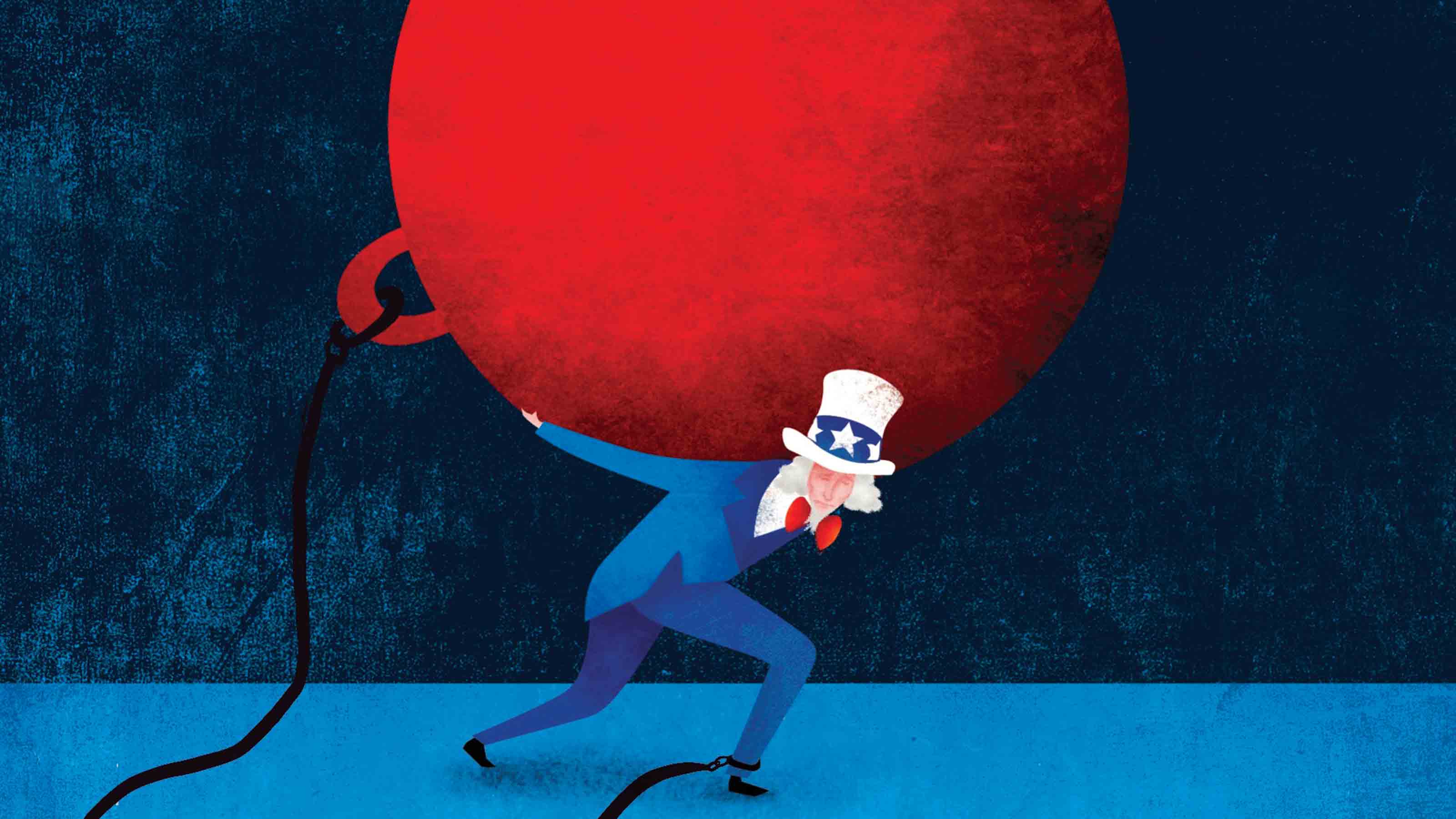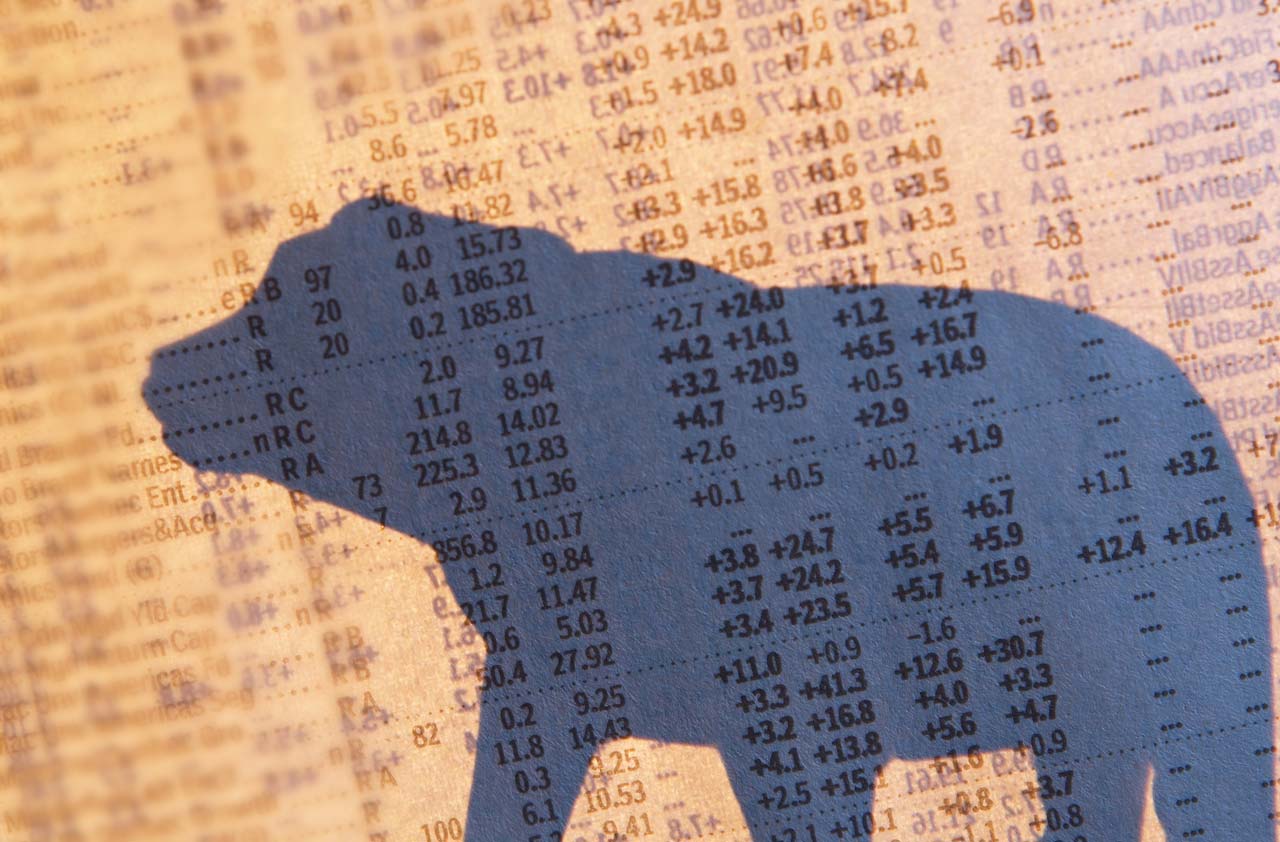The Economic Fallout of the Facebook IPO
It's been ugly to watch. The animal spirits of entrepreneurs everywhere are getting doused. But long-term gains are still possible.

Profit and prosper with the best of Kiplinger's advice on investing, taxes, retirement, personal finance and much more. Delivered daily. Enter your email in the box and click Sign Me Up.
You are now subscribed
Your newsletter sign-up was successful
Want to add more newsletters?

Delivered daily
Kiplinger Today
Profit and prosper with the best of Kiplinger's advice on investing, taxes, retirement, personal finance and much more delivered daily. Smart money moves start here.

Sent five days a week
Kiplinger A Step Ahead
Get practical help to make better financial decisions in your everyday life, from spending to savings on top deals.

Delivered daily
Kiplinger Closing Bell
Get today's biggest financial and investing headlines delivered to your inbox every day the U.S. stock market is open.

Sent twice a week
Kiplinger Adviser Intel
Financial pros across the country share best practices and fresh tactics to preserve and grow your wealth.

Delivered weekly
Kiplinger Tax Tips
Trim your federal and state tax bills with practical tax-planning and tax-cutting strategies.

Sent twice a week
Kiplinger Retirement Tips
Your twice-a-week guide to planning and enjoying a financially secure and richly rewarding retirement

Sent bimonthly.
Kiplinger Adviser Angle
Insights for advisers, wealth managers and other financial professionals.

Sent twice a week
Kiplinger Investing Weekly
Your twice-a-week roundup of promising stocks, funds, companies and industries you should consider, ones you should avoid, and why.

Sent weekly for six weeks
Kiplinger Invest for Retirement
Your step-by-step six-part series on how to invest for retirement, from devising a successful strategy to exactly which investments to choose.
The fallout from Facebook’s botched initial public offering isn’t over. Far from it.
The already-legendary trading snafus at the Nasdaq exchange cost investors and market makers more than $100 million. It's amazing to think that one of the most highly anticipated IPOs in memory degenerated into a litany of mistakes and misjudgments. Regulators are investigating the IPO, which came out at $38 on May 18. The stock subsequently fell to $25.86 on June 5 -- a drop in value of about one-third. It closed at $31.41 on June 18.
SEE ALSO: Fallen IPOs to Invest in Now
From just $107.88 $24.99 for Kiplinger Personal Finance
Become a smarter, better informed investor. Subscribe from just $107.88 $24.99, plus get up to 4 Special Issues

Sign up for Kiplinger’s Free Newsletters
Profit and prosper with the best of expert advice on investing, taxes, retirement, personal finance and more - straight to your e-mail.
Profit and prosper with the best of expert advice - straight to your e-mail.
The latest twist in the sorry saga is the June 6 offer by Nasdaq to pay out some $40 million in cash and discounts to member firms that were "disadvantaged by technical problems." The offer is getting a lukewarm reception. The damage to investor confidence has been so great that new IPOs have essentially come to a halt. All the market volatility associated with the euro zone crisis hasn't helped, either.
In one sense, the debacle involving the social media behemoth simply reemphasizes a hoary insight Wall Street veterans share with individual investors at cocktail parties and investing conferences: IPOs are risky gambles best left to deep-pocketed institutional investors. I think a more nuanced approach toward investing in IPOs is in order. But more on that later.
Facebook's debut underscores a far more pressing issue: IPOs are an endangered species on Wall Street. For example, from 2001 through 2011, the annual number of IPOs by domestic operating companies averaged 90 per year, a shadow of the annual average of 298 from 1980 through 2000. The drop in IPOs is most noticeable among firms with less than $50 million in annual revenues, according to Jay Ritter, finance professor at the University of Florida. (The IPO figures exclude a number of categories, such as real estate investment trusts, spinoffs, banks, foreign companies, and deals priced at less than $5 a share.)
The thing is, IPOs have long represented the kind of dynamic firms that capture investor imagination and generate job and revenue growth. Think Hewlett-Packard, Control Data and Digital Equipment in the '50s and '60s; Nike, Genentech and Microsoft in the '70s and '80; and Google and Amazon.com in the '90s and '00s.
Even before the trauma of the Great Recession and the disappointment caused by an anemic recovery, the economy's underlying dynamism was faltering. For example, according to Ritter and Martin Kenney and Donald Patton, of the University of California, Davis, the 2,766 companies that went public from June 1996 through 2010 employed more than 5 million people before their IPOs, but 7.3 million in 2010 post IPOs -- a 45% increase. Adjusted for inflation, their combined sales increased by 96%, from $1.3 trillion in the year before going public to $2.6 trillion in 2010.
Yet, in an intriguing calculation the scholars estimate that if the IPO creation rate of 1980 to 2000 had stayed the same during 2001-2011, the 2,288 additional IPOs would have created an additional 1.8 million jobs.
What's going on? Some of the IPO slowdown may stem from Sarbanes-Oxley, the tougher accounting and reporting reforms enacted after the collapse of Enron, WorldCom and other highfliers in the early 2000s.
Regulators have tried to limit Wall Street conflict of interest by shoring up the so-called firewall between investment bankers and research analysts. One effect of the rules has been to cut down on the number of Wall Street analysts willing to follow small, newly minted public companies.
Yet the far bigger impact lies with economics, not public policy, according to a persuasively argued research paper, Where Have All the IPOs Gone? by Ritter, Xiaohui Gaoa, at the University of Hong Kong, and Zhongyan Zhuc, of the Chinese University of Hong Kong. For one thing, the returns on small-company IPOs have been abysmal over the past several decades -- and investors have noticed. For another, the economy is increasingly a "winner take all" game. The combination of rising globalization and rapid technological innovation creates a competitive environment that favors a handful large of top performers in industry after industry. In a winner-take-all scenario, it makes financial sense for small innovative firms to sell out to bigger competitors rather than go public and fight for a share of markets and profits. "Especially in technology, getting big is more important than it used to be," says Ritter.
The lure to innovate remains. It's how entrepreneurs profit from their innovations that has changed. I think there are reasons for concern in the shift from innovative companies offering IPOs to selling out to the bigger fish. For one thing, what will be the long-term impact on economic growth from the rising concentration of wealth and income in the U.S.?
Economists Robert Litan and E. J. Reedy found in a recent Kaufmann Foundation study that in the 1990s new establishments opened for business with about 7.5 jobs, on average, compared with 4.9 jobs in the 2000s. The risk is that over time talented innovators will decide it's smarter to work for the behemoths -- good pay, good jobs and job security -- rather than taking a flier on starting their own companies. Entrepreneurial innovation and winner-take-all markets collide at some point.
In the meantime, individual investors who are tempted to bet on an IPO should stick with the bigger companies. Google was a multibillion-dollar company before it went public in 2004 at $85 a share. It closed at $570.85 on June 18. Microsoft, EBay, Amazon and other well-known IPOs were already generating hefty revenues before tapping the public markets.
Consider this: From 2001 through 2009 small company IPOs (pre-issue sales of less than $50 million in 2009 dollars) underperformed the relevant market benchmark index by 19.6 percent during the three years after going public. In contrast, says Ritter, large company IPOs (more than $50 million in inflation-adjusted pre-issue sales) out performed their relevant index by 12.9 percent. In other words, investing in Facebook, a big company, may well turn out to be a smart move over the long term. Among its IPO investors is Professor Ritter. For now, he's optimistically holding onto his shares.
Profit and prosper with the best of Kiplinger's advice on investing, taxes, retirement, personal finance and much more. Delivered daily. Enter your email in the box and click Sign Me Up.

-
 5 Vince Lombardi Quotes Retirees Should Live By
5 Vince Lombardi Quotes Retirees Should Live ByThe iconic football coach's philosophy can help retirees win at the game of life.
-
 The $200,000 Olympic 'Pension' is a Retirement Game-Changer for Team USA
The $200,000 Olympic 'Pension' is a Retirement Game-Changer for Team USAThe donation by financier Ross Stevens is meant to be a "retirement program" for Team USA Olympic and Paralympic athletes.
-
 10 Cheapest Places to Live in Colorado
10 Cheapest Places to Live in ColoradoProperty Tax Looking for a cozy cabin near the slopes? These Colorado counties combine reasonable house prices with the state's lowest property tax bills.
-
 Federal Debt: A Heavy Load
Federal Debt: A Heavy LoadEconomic Forecasts The debt continues to grow, but record-low interest rates could ease the long-term damage.
-
 Is a Recession Imminent?
Is a Recession Imminent?Economic Forecasts Shoppers will have to carry the load for now because weak business investment shows no sign of perking up anytime soon. Odds are, they’ll be able to.
-
 3 Factors That Could Drive the Next Recession
3 Factors That Could Drive the Next RecessionEconomic Forecasts The economy is humming along nicely, but how long can the good times continue?
-
 Savers Feel the Pain of Low Interest Rates
Savers Feel the Pain of Low Interest RatesMaking Your Money Last The Fed's low-rate policy has cost U.S. savers $470 billion.
-
 Is the Stock Market Signaling a Recession Ahead?
Is the Stock Market Signaling a Recession Ahead?Economic Forecasts Sinking stocks don't necessarily presage an economic downturn.
-
 U.S. Manufacturers on a Roll
U.S. Manufacturers on a RollEconomic Forecasts Cheap energy and an improving economy will keep manufacturing growing at a better-than-average rate.
-
Next Rise in Interest Rates Will Come in 2015
business Even when rates finally do head up, they won't zoom out of control. A progressive series of stair steps is more like it.
-
Fracking Boom Spells New Tech Investments
Economic Forecasts Solutions to energy and safety concerns will be in hot demand.